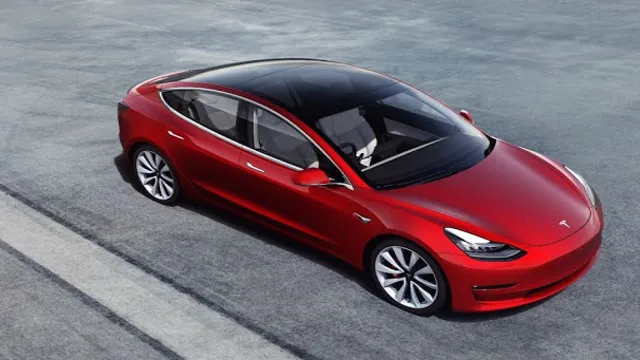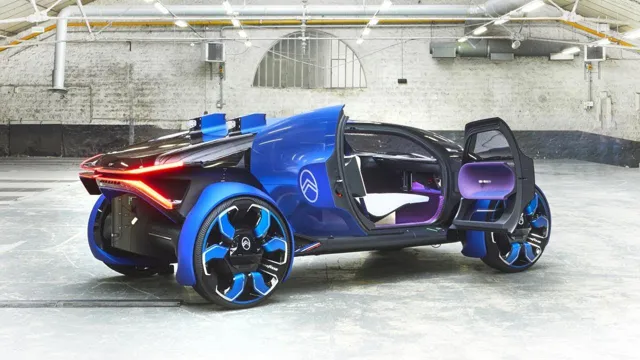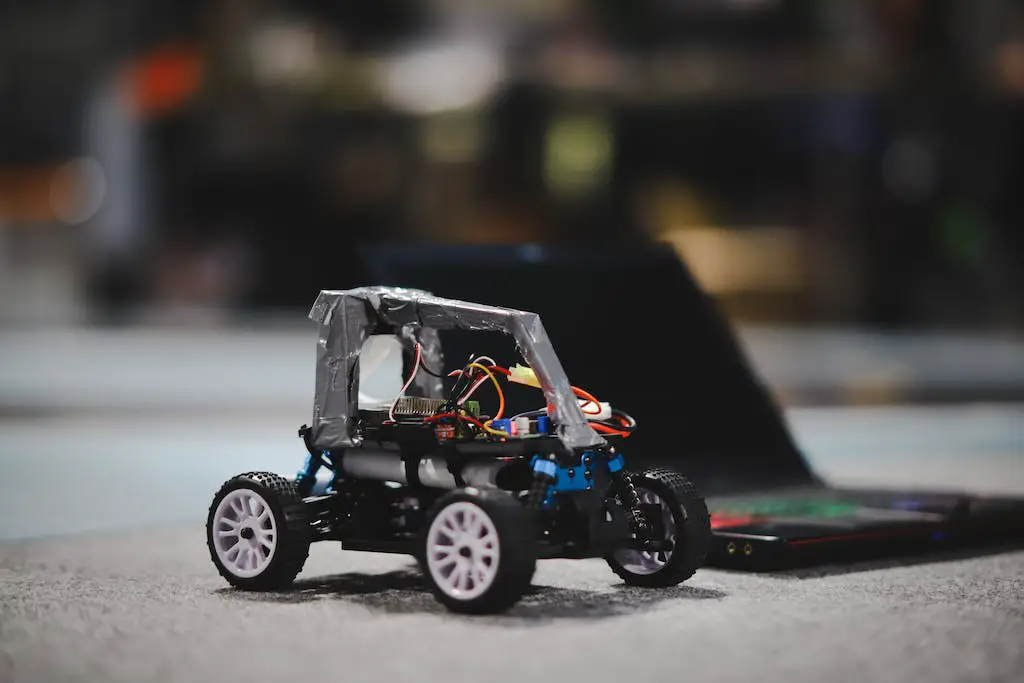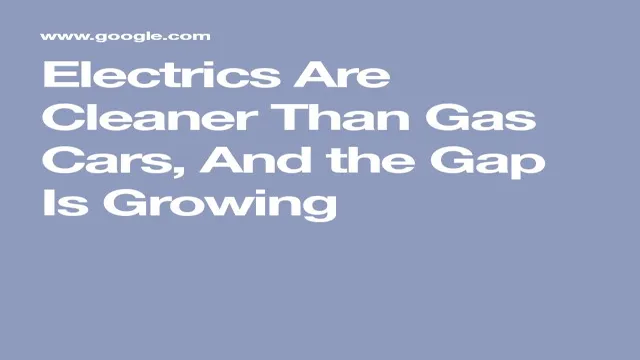Debunking the Myth: Why Electric Cars Are Not the Ultimate Solution to Save the Planet
Electric cars have become increasingly popular in recent years as more people seek eco-friendly alternatives to traditional gas-guzzling vehicles. While electric cars may seem like the perfect solution to reducing our carbon footprint, there is still some debate over whether they are truly better for the environment. Some argue that the production of electric vehicles and their batteries actually has a larger carbon footprint than traditional cars, while others contend that the overall impact of electric cars is still much lower.
So, what’s the truth about electric cars and the environment? Let’s dive deeper into this topic and find out.
Current State of Global Emissions
Despite the growing popularity of electric cars, experts agree that they won’t single-handedly solve the issue of global emissions. While they’re certainly a step in the right direction, they’re not the silver bullet that many people believe them to be. In fact, transportation only accounts for a fraction of global emissions, with power generation and industry being the primary culprits.
While increasing the use of electric cars is still a vital step towards reducing emissions, it must be accompanied by a larger-scale shift towards renewable energy and sustainable production methods. Without this holistic approach, electric cars alone won’t be enough to save the planet.
Greenhouse Gases and Climate Change
Greenhouse gases play a significant role in climate change, and the current state of global emissions is alarming. Since the Industrial Revolution, human activities have significantly increased the concentration of carbon dioxide, methane, and nitrous oxide in the atmosphere. Today, carbon dioxide emissions from burning fossil fuels and deforestation contribute to over 80% of total greenhouse gas emissions.
The concentration of CO2 in the atmosphere has reached 408 parts per million, the highest level in 800,000 years, which is causing the Earth’s temperature to rise and disrupting the planet’s ecological balance. Scientists warn that if we continue to emit greenhouse gases at the current rate, the climate conditions could become very severe and irreversible. To prevent catastrophic climate change, immediate action is needed to reduce greenhouse gas emissions and transition to a low-carbon economy.
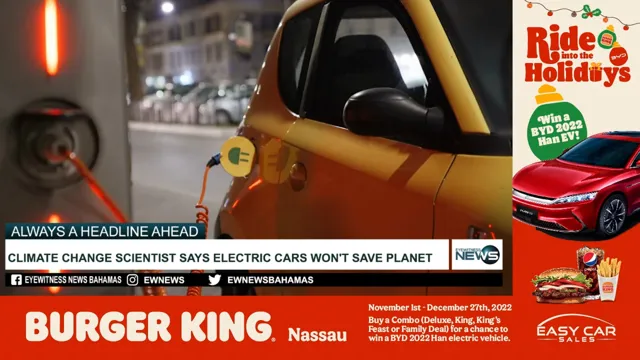
Impact of Transportation on the Environment
The impact of transportation on the environment has become an increasingly pertinent issue in recent years. The current state of global emissions from transportation is significant, accounting for around 14% of all greenhouse gas emissions. Cars are the primary contributor to transportation emissions, but the shipping and aviation industries also play a significant role.
The carbon dioxide, nitrogen oxides, and particulate matter emitted from vehicles and airplanes have adverse effects on both the environment and human health. The emissions contribute to climate change, air pollution, and are a leading cause of respiratory diseases. Despite advancements in fuel efficiency and electric vehicles, transportation remains a significant source of emissions.
As such, it is essential to adopt practices that reduce transportation emissions, such as carpooling, using public transportation, and biking or walking for shorter distances. These practices are not only beneficial for the environment but can also lead to cost savings and improved health outcomes.
Electric Cars as a Solution
While electric cars have been touted as a solution to reduce our carbon footprint, the reality is that they won’t save the planet on their own. While they are certainly a step in the right direction, there are several factors at play that make their impact limited. Firstly, the materials required to manufacture electric cars, such as lithium and cobalt, are not sustainable and are often mined in unethical conditions.
Secondly, the production of electricity to power these cars is still largely reliant on fossil fuels in many parts of the world. Finally, it’s important to consider the overall impact on the environment during the lifecycle of the car, including the disposal of batteries. While electric cars are certainly a positive step in the right direction, they should be seen as part of a wider solution that involves reducing our overall consumption of resources and implementing sustainable transportation options, such as public transportation, biking and walking.
We all play a role in saving the planet, and it will take a combination of efforts to make a real impact.
Reducing Emissions with Electric Cars
Electric cars are quickly becoming a popular solution to reducing emissions in the automobile industry. With the increasing concern about climate change and the environment, electric cars provide a clean and sustainable alternative to conventional gas-powered cars. They are powered by rechargeable batteries that emit no harmful greenhouse gases, making them environmentally friendly.
The best part about electric cars is that they are just as efficient and powerful as gas-powered cars, if not more. Electric cars have a faster acceleration and can travel long distances without the need for frequent refueling. With the advancement of technology and the creation of more charging stations, electric cars are becoming a convenient and practical solution for consumers who want to reduce their carbon footprint.
By switching to electric cars, not only can we help reduce emissions, but we can also save money on fuel and maintenance costs in the long run. It’s time to embrace the future and make a positive impact on the environment by choosing electric cars.
Electric Cars and Renewable Energy
Electric cars have become increasingly popular in recent years, as more people seek out environmentally friendly alternatives to fossil fuel-powered vehicles. Not only do electric cars produce zero emissions while driving, but they are also powered by renewable energy. This means that every mile driven in an electric car helps to reduce our dependence on non-renewable resources, such as oil and gas.
Additionally, many electric car owners choose to install solar panels on their homes, which can generate the electricity needed to power their cars. This creates a closed-loop system, where renewable energy sources are used to power renewable energy vehicles. By shifting towards electric cars and renewable energy, we can reduce our carbon footprint and help to create a more sustainable future for generations to come.
Lifecycle Analysis of Electric Cars
Electric Cars Electric cars are increasingly seen as a solution to the environmental crisis caused by fossil-fueled vehicles. The lifecycle analysis of electric cars shows that they produce fewer greenhouse gas emissions than traditional cars. However, to understand the full extent of their environmental impact, we need to look at the entire lifecycle of electric cars, from mining the necessary materials to the end of their useful life.
Electric cars’ environmental benefits are largely nullified if the electricity they use requires burning coal or natural gas. Nevertheless, the popularity of electric cars continues to grow. As technology advances, more and more people will consider an electric car as a viable alternative to traditional gasoline-fueled vehicles.
Overall, the use of electric cars represents an essential and vital step in the fight against climate change.
Limitations of Electric Cars
While electric cars may seem like the perfect solution to reducing our carbon footprint, there are certain limitations that prevent them from being the ultimate savior of our planet. Firstly, electric cars run on batteries, and the production of these batteries is incredibly energy-intensive and requires the mining of precious metals and minerals, which can have a detrimental impact on the environment. Additionally, the charging of electric cars ultimately relies on electricity produced by power plants, many of which still rely on fossil fuels for power.
While electric cars can certainly play a role in reducing emissions, they are not a silver bullet solution to climate change. In fact, we need to focus on reducing our reliance on fossil fuels in all aspects of our lives and industries to truly make an impact in saving our planet. So, while electric cars may appeal to our desire for a quick and easy solution, we must acknowledge their limitations and focus on making larger, systemic changes.
Battery Production and Disposal
One of the limitations of electric cars is the production and disposal of their batteries. While electric cars are more environmentally friendly compared to their gasoline-powered counterparts, the production and disposal of their batteries have significant environmental impacts. The production of these batteries requires the mining of rare minerals that can damage the environment.
Furthermore, the disposal of these batteries can lead to toxic chemicals being released into the environment, causing harm to both human health and the ecosystem. However, efforts are being made to address these concerns through various initiatives, including the development of more sustainable methods for battery production and the implementation of better recycling programs. As consumers, we can also contribute to reducing the environmental impact of electric cars by properly disposing of old batteries and purchasing cars with more sustainable battery options.
At the end of the day, it’s up to all of us to choose environmentally responsible options to ensure a greener future.
Charging Infrastructure and Grid Limitations
The limitations of electric cars go beyond just their range. While charging infrastructure has improved in recent years, it still may not be enough to meet the demand of a growing number of electric vehicles. For example, during peak times, the electricity grid may not be able to handle the surge of electric cars all charging at once.
Additionally, there are concerns about how much electricity will be needed to power the increasing number of electric vehicles on the road, and whether the grid will be equipped to handle it. This has led to discussions and initiatives aimed at upgrading the electricity infrastructure to cope with the increased demand, from the addition of more charging stations to smart grid technologies that can balance supply and demand. As we transition towards a greener future, it’s important to consider not just the benefits of electric cars, but also the challenges that come with them.
Conclusion: A More Holistic Approach
To sum it up, while electric cars may offer a promising solution to reducing greenhouse gas emissions, they alone won’t save our planet. We need to look beyond just replacing our gas-guzzlers with electric vehicles and instead change our consumption patterns, invest in renewable energy sources, and encourage sustainable practices. So, as much as we love the idea of cruising around in a zippy electric car, it’s time to acknowledge that we need a much more comprehensive and all-encompassing approach to save our planet from the imminent threat of climate change.
“
FAQs
What is the impact of electric cars on the environment?
While electric cars produce fewer emissions than traditional cars, they are not a complete solution to saving the planet. The production and disposal of electric car batteries still have an environmental impact.
Can electric cars alone make a significant difference in reducing greenhouse gas emissions?
No, electric cars alone are not enough to combat climate change. It requires a collective effort of adopting sustainable practices, reducing consumption, and shifting towards renewable energy.
Are electric cars more expensive than traditional cars?
Yes, currently, electric cars are generally more expensive than traditional cars due to the cost of production and battery technology.
Can electric cars be powered completely by renewable energy sources?
Yes, it is possible to power electric cars entirely with renewable energy sources, such as solar or wind power. However, the infrastructure for this needs to be developed and implemented on a large scale.

